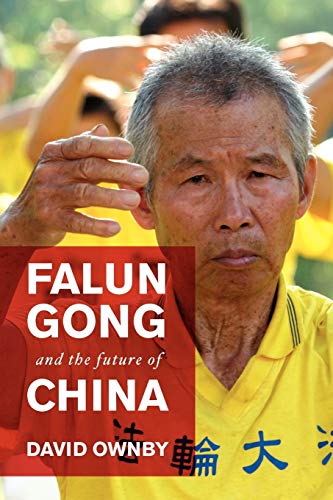All books / Book
Falun Gong and the Future of China

| Full title: | Falun Gong and the Future of China |
|---|---|
| ISBN: | 9780199738533 |
| ISBN 10: | 019973853X |
| Authors: | Ownby, David |
| Publisher: | Oxford University Press |
| Edition: | 1 |
| Num. pages: | 312 |
| Binding: | Paperback |
| Language: | en |
| Published on: | 2010 |
Read the reviews and/or buy it on Amazon.com
Synopsis
On April 25, 1999, ten thousand Falun Gong practitioners gathered outside Zhongnanhai, the guarded compound where China's highest leaders live and work, in a day-long peaceful protest of police brutality against fellow practitioners in the neighboring city of Tianjin. Stunned and surprised, China's leaders launched a campaign of brutal suppression against the group which continues to this day. This book, written by a leading scholar of the history of this Chinese popular religion, is the first to offer a full explanation of what Falun Gong is and where it came from, placing the group in the broader context of the modern history of Chinese religion as well as the particular context of post-Mao China.
Falun Gong began as a form of qigong, a general name describing physical and mental disciplines based loosely on traditional Chinese medical and spiritual practices. Qigong was "invented" in the 1950s by members of the Chinese medical establishment who were worried that China's traditional healing arts would be lost as China modeled its new socialist health care system on Western biomedicine. In the late 1970s, Chinese scientists "discovered" that qi possessed genuine scientific qualities, which allowed qigong to become part of China's drive for modernization. With the support of China's leadership, qigong became hugely popular in the 1980s and 1990s, as charismatic qigong masters attracted millions of enthusiastic practitioners in what was known as the qigong boom, the first genuine mass movement in the history of the People's Re
Falun Gong founder Li Hongzhi started his own school of qigong in 1992, claiming that the larger movement had become corrupted by money and magic tricks. Li was welcomed into the qigong world and quickly built a nationwide following of several million practitioners, but ran afoul of China's authorities and relocated to the United States in 1995. In his absence, followers in China began to organize peaceful protests of perceived media slights of Falun Gong, which increased from the mid-'90s onward as China's leaders began to realize that they had created, in the qigong boom, a mass movement with religious and nationalistic undertones, a potential threat to their legitimacy and control.
Based on fieldwork among Chinese Falun Gong practitioners in North America and on close examinations of Li Hongzhi's writings, this volume offers an inside look at the movement's history in Chinese popular religion.
Publishers Weekly
Historian Ownby examines the controversial Falun Gong movement in this detailed study of its origins in China and its status among the Chinese diaspora, particularly in North America. Addressing Falun Gong within the context of Chinese popular religions and the post-Mao state's ongoing search for political and cultural identity rather than human rights discourse, Ownby (Université de Montreal) sifts through conflicting evidence to explain why neither Falun Gong's development nor the Chinese government's strong reaction were historical anomalies. He describes how Falun Gong, a spiritual cultivation system rooted in China's redemptive societies and the recent enthusiasm for qigong, began in 1992. He also chronicles the events that led the Chinese government to crack down on this popular movement in 1999, including the aftermath in China and abroad. The book includes extensive quotes from founder Li Hongzhi's writings as well as witness statements from practitioners. Despite the book's title, China's future given the persistence of Falun Gong's adherents is not extensively addressed. Ownby's account, while strongly written, is perhaps most suited for academic collections. (May)
Copyright © Reed Business Information, a division of Reed Elsevier Inc. All rights reserved.